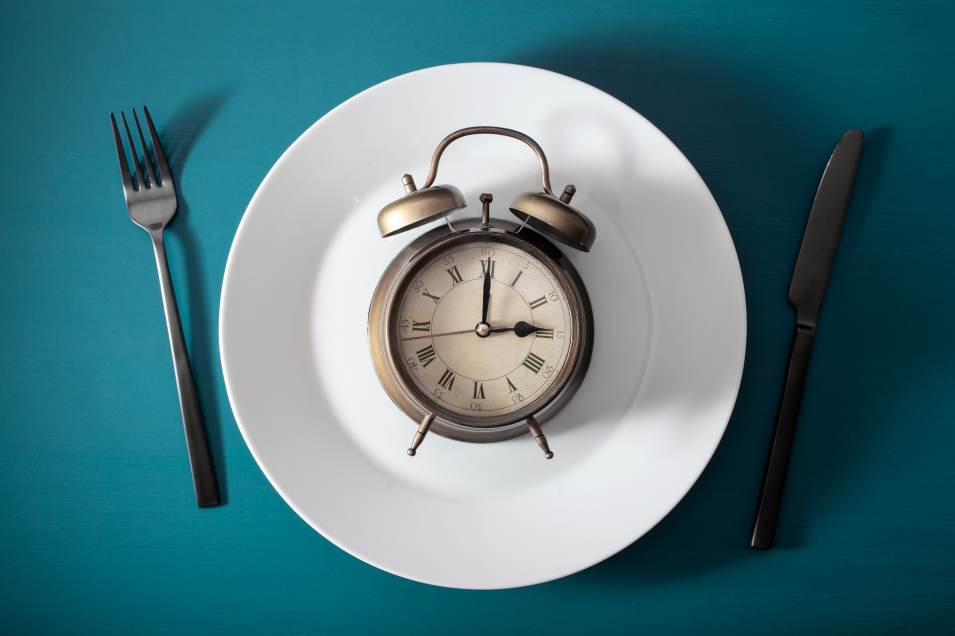All You Need To Know
What is 14/10 Intermittent Fasting? | 14/10 Intermittent Fasting and Weight Loss | Why Choose 14/10 Intermittent Fasting? | What Foods Promote Weight Loss | Foods To Avoid
Intermittent fasting is widely followed to lose weight and improve health. In this eating pattern, you eat during a specific period of time, and the length of your eating window depends on your fasting type. The most popular intermittent fasting methods include 16/8, 12/12, alternate-day fasting, and 24 hours fast.
Though 14/10 intermittent fasting is not a popular one it is a convenient and easy-to-follow eating pattern. In this, you have to fast for 14 hours and your eating window lasts for 10 hours.
A 2019 study has revealed that fasting for 10 hours and more can significantly benefit your weight, blood pressure, and metabolic health. However, you should consult your doctor before following a new diet pattern to avoid any adverse effects.
So, how to follow 14/10 intermittent fasting to achieve optimal health? How this eating pattern works and what foods you should include, let us discuss them all.
What is 14/10 Intermittent Fasting?
Generally, in 14/10 intermittent fasting, you have to fast for 14 hours and your eating window is 10 hours. You can eat between 9 AM and 7 PM and fast between 7 PM to 9 AM. Many find it to be an easy to follow eating pattern.
If you are an early bird, you can set 7 AM to 5 PM as your eating window and 5 PM to 7 AM would be your fasting window. There is also another option many prefer 8 AM to 6 PM as the eating window and 6 PM to 8 AM fasting window.
During your eating window, you can have your usual meals and snacks. In the fasting window, you have to restrict your calorie intake completely. However, you can drink water or green tea, or black coffee without sugar.

Is 14/10 Intermittent Fasting Effective Enough for Weight Loss?
Although most of the studies are conducted on 5/2 or 16/8 intermittent fasting and its benefits, few studies show the effectiveness of 14/10 intermittent fasting for improving cardiometabolic health.
Studies have shown that periodic eating patterns and intermittent fasting methods can reduce the CVD risk. Intermittent fasting methods have also helped to lower blood pressure, decrease the risk of severe health conditions such as type 2 diabetes and obesity.
14/10 intermittent fasting would be the best choice for people who find it difficult to follow the 16/8 fasting. Intermittent fasting 14/10 is effective enough to reduce your weight and also avoids hunger pangs.
To know about various other benefits of intermittent fasting, read 8 Benefits Of Intermittent Fasting: A Complete List.
Why Choose 14/10 Intermittent Fasting?
Intermittent fasting 14/10 is one the easiest way to follow intermittent fasting. Generally, you sleep for 7 hours, and you will be fasting for another 7 hours. It is achievable and can be followed during diabetes and in old age too. When you fast for more than 13 hours, it reduces the risk of high blood pressure, high cholesterol, and obesity.
Experts recommended starting your intermittent fasting with the 14/10 fasting method, and then once your body gets accustomed, you can shift to 16/8 or 24 hour-fasts. As a beginner, if you fast for long hours, you may experience side effects such as hunger pangs, headaches, and increased irritability. However, you can avoid these unpleasant effects and gear up for other fasting methods with a short fasting window.
In a study, adults who fasted for 14 hours had shown more weight loss when compared with people who had longer eating windows. It is also observed that 14/10 fasting enables weight loss and improves sleep quality, satiety, and energy levels.

Although intermittent fasting does not specify any particular food requirements or restrictions in your diet, it is essential to consider nutritional foods which will help you to get desired results. A healthy and well-balanced diet is vital to see the effectiveness of any fasting methods. Here is a list of a few healthy foods which you can consider during your intermittent fasting.
1. Healthy Fat Foods
Foods like fatty fish, nuts, and seeds are essential. You might be wondering that these foods have fats, but remember not all fat is bad for you. Monounsaturated and polyunsaturated fats are considered to be healthy fats.
Healthy fat helps to reduce your bad cholesterol level and decreases the risk of heart diseases. Hence, you can eat tuna, salmon, and mackerel, rich in healthy fat and proteins. If you are a vegan, consider adding avocados, olives, flax, nuts, and chia seeds to your diet.
2. Protein-Rich Foods
We all know proteins are the building blocks of our body. Protein is a vital nutrient that your body requires for growth, and it plays a crucial role in a weight loss diet plan. Proteins help you to lose your fat while preserving the muscles. It makes you feel full.
Consider protein-rich foods such as chicken, pork, low-fat meat, eggs, legumes, soy, soy products, vegetables such as broccoli, cabbages, sprouts, dairy products such as milk, cheese, yogurt, almonds, pumpkin seeds, and fruits.
3. Probiotics
Probiotics are also an excellent choice to consider when you are aiming for weight loss. Several studies suggest the role of probiotics in weight loss; they are said to improve metabolism and maintain good gut health. Probiotics can also reduce inflammation and aid in digestion.
Probiotic-rich foods are yogurt, cheddar cheese, mozzarella cheese, sour dill pickles, kimchi, miso, etc.
4. Fruits and Vegetables
Experts recommend including more and more fruits and veggies. They are a great source of a wide variety of vitamins, minerals, and nutrients.
With high water content, they make you feel full for a long time. Vegetables have lots of fiber which is good for your gut. These vegetables and fruits boost your metabolism.
Fruits and veggies are rich in vitamins, consider adding them more in your diet;
- Vitamin B: apples, watermelons, grapes, banana, spinach, and potato
- Vitamin A: carrot, beetroot, and papaya
- Calcium: spinach, leafy vegetables
- Vitamin C: citrus fruits
- Iron: chickpeas, spinach, and lentils
5. Water
Water is the only food allowed during fasting. Keep yourself hydrated, drink water often throughout your fast and eating window. Many experts suggest drinking plenty of water before food so that you eat less.
According to many nutritionists, an adult person should drink a minimum of 8 glasses of water per day. While you are fasting, always keep a water bottle handy and keep sipping the water. You can try mint water, warm water, basil water, and cucumber fused water. But make sure to consume more water when you are following any fasting or intermittent diet.

Foods to Avoid During Intermittent Fasting
Weight loss ultimately depends on your diet and the foods that you consume. Most of you are aware of the fact that certain foods can make you put on weight. Hence, to reach your weight loss goal, you have to reduce the consumption of such foods.
1. Saturated Fats
Saturated fats and trans fats are known as bad fats; they solidify at room temperature. Many dietitians recommend not to consume more than 13g of saturated fats per day.
Saturated fats are generally found in processed foods, animal foods, palm oil, cocoa butter, and fast foods. Hence, try to avoid all the processed and fast foods in your diet. Include fresh foods, organic foods, and avoid preservatives in your food.
2. Avoid Refined Carbs
Carb is an essential nutrient for the proper functioning of your body. They are the energy providers. But, refined carbs are not healthy; you must avoid them.
Refined carbs consumption in greater amounts can cause obesity, increased risk of CVD and type 2 diabetes, and osteoarthritis. Avoid foods such as pizza, pastries, waffles, flavored yogurt, cakes, bread, pasta sauce, etc.
3. Avoid Carbonated and Sugary Drinks
Drinking soda or any carbonated sugary drinks is a wrong choice during your intermittent fasting. They contain more calories and glucose, which would make your effort to lose weight more difficult.
You can try black coffee, mint water, cucumber-infused water, green tea, or anything without sugar. These drinks are low-calorie drinks and make you feel fresh, and are enriched with antioxidants.
Final Words
When you sync your body clock to your eat and sleep cycle, you experience excellent health benefits. 14/10 intermittent fasting is an easy-to-follow eating pattern that can give you a good start for your intermittent fasting diet routine. Sticking to a healthy eating pattern that suits your body’s needs can result in better physical and mental health.
Want to start intermittent fasting? Take up our 21-day intermittent fasting challenge that will give you an action plan with a complete guide. Get daily inspiration through messages and emails. You can also access meal plans and a weekly shopping list. Join our intermittent fasting community and get started with your fasting routine.



